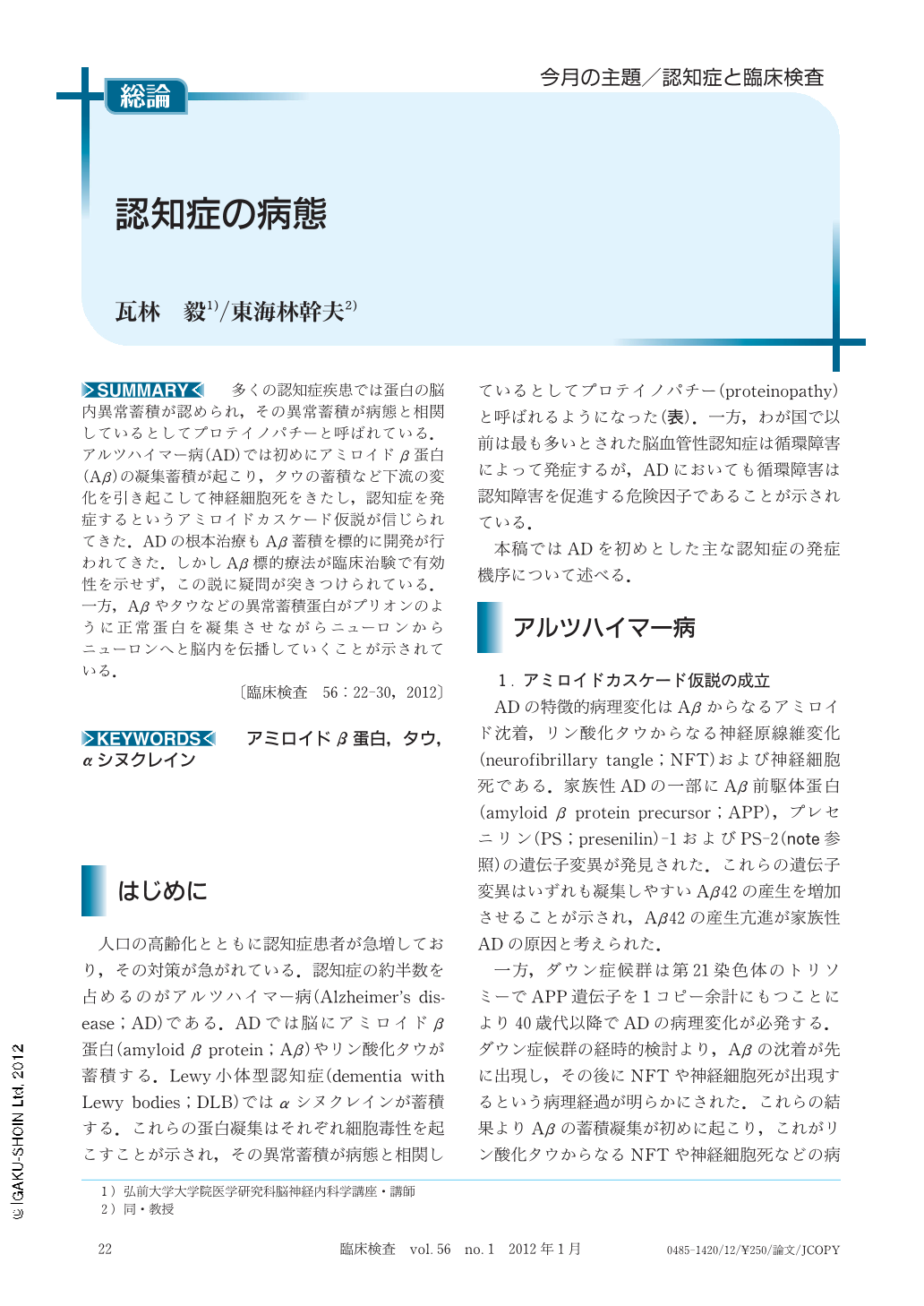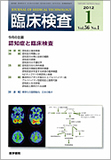Japanese
English
- 有料閲覧
- Abstract 文献概要
- 1ページ目 Look Inside
- 参考文献 Reference
多くの認知症疾患では蛋白の脳内異常蓄積が認められ,その異常蓄積が病態と相関しているとしてプロテイノパチーと呼ばれている.アルツハイマー病(AD)では初めにアミロイドβ蛋白(Aβ)の凝集蓄積が起こり,タウの蓄積など下流の変化を引き起こして神経細胞死をきたし,認知症を発症するというアミロイドカスケード仮説が信じられてきた.ADの根本治療もAβ蓄積を標的に開発が行われてきた.しかしAβ標的療法が臨床治験で有効性を示せず,この説に疑問が突きつけられている.一方,Aβやタウなどの異常蓄積蛋白がプリオンのように正常蛋白を凝集させながらニューロンからニューロンへと脳内を伝播していくことが示されている.
Degenerative diseases of the brain with dementia may be characterized by disturbances of protein metabolism and accumulation of protein deposits. The amyloid cascade hypothesis that the deposition of amyloid β peptide in the brain is a central event in Alzheimer's disease pathology, has been accepted for 20 years. Several therapeutics purported to reduce amyloid β production or aggregation have failed in Phase Ⅲ clinical trials. This failure has led to questioning of the role of amyloid-β and amyloid deposition in AD. Here Ⅰ summarize the pathogenesis of the main dementia disorders.

Copyright © 2012, Igaku-Shoin Ltd. All rights reserved.


